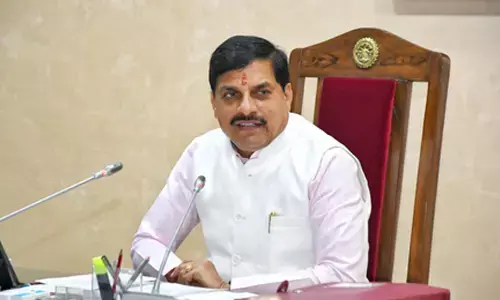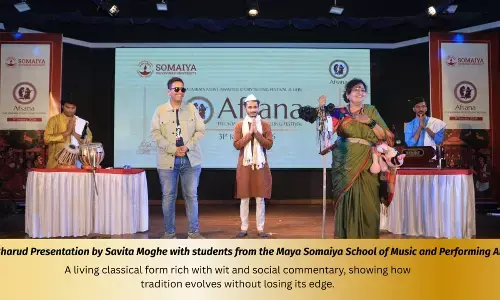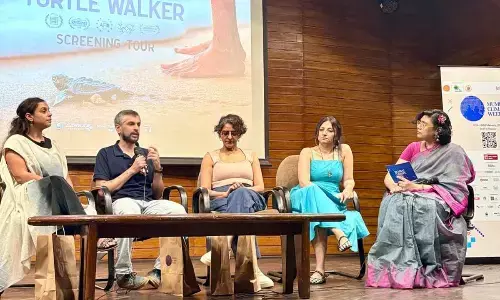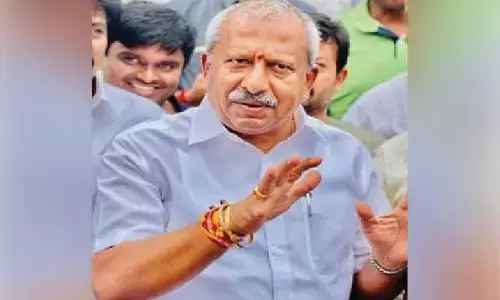Right to services: Mark of good governance

Right to services: Mark of good governance. An ambitious people-oriented legislation, Right to Services Act, is reported to be under the active consideration of the Government of India.
An ambitious people-oriented legislation, is reported to be under the active consideration of the Government of India. The Right to Services Act, now under consideration, is intended to guarantee time-bound delivery of various public services rendered by the government to the citizens. It provides for a mechanism to check and prevent deficiency in services including punishing the errant public servant.

Despite the tremendous growth of communication media, people’s ignorance of public policy and programmes is enormous. A major block to the right to services is rampant corruption eating into administration at all levels. It points to the importance of Lok Pal without which rights and charters will remain on paper. The legislation is an indispensable step towards good governance
An ambitious people-oriented legislation, Right to Services Act, is reported to be under the active consideration of the Government of India. Falling under the Ministry of Personnel and Public Grievances, it is concerned with the execution of policies and programmes of all ministries and departments, and covers procedures, methods, strategies and impact. Rights-based citizen entitlements are an advanced concept of democracy.
It is demanded and conceded in many democratic countries all over the world. A product of neo-liberalism, it has engulfed thinking and action towards freedom and equality. It has become a prerequisite for development ethics. India’s move towards this ideal follows the prevailing global trend in democratic practices and patterns.
The proposed legislation, concerned with a ‘right,’ has to guarantee not only freedom to obtain the right, but also equality to enjoy and exercise the right without any discrimination. As such, it has to pay special attention and take care of the weak, the depressed and marginalised groups, the uninformed, and the disabled who may lag behind in the race.
On the other side, it has to evolve methods to tackle the growing VIP culture, and cope up with the enormous privileges given to and appropriated by the rich and the powerful. For, every privilege granted to one person cuts into the right of another person, and should therefore be granted with utmost caution.
The foundation of democratic government is rooted in the concept that all public power rises from the people. Everyone theoretically enjoys the same rights and opportunity. It is the right as well as the duty of the citizens to watch and scrutinise how the public authorities exercise their power and discharge their functions. In rights-based governance, service is a right and guarantee of service delivery. It is offered in a variety of forms in many countries.
Common among these are proclamation of a Citizens’ Charter, certification of processes adopted for ensuring compliance with agreed standards of service delivery, legislations like the Right to Information Act, and Consumer Protection Act, introduction and institutionalisation of regulatory authorities, adoption of results-based management, introduction of outcome budgets, and promotion of public-private partnerships in public service delivery.
During the 1990s, a number of countries within and outside the Commonwealth adopted citizens’ charters following the initiative taken in the UK. They were all designed to empower the citizens in relation to public service delivery. The principles were to maintain quality and prescribed standards and provide procedures to deal with lapses, and maintain accountability and transparency.
Later, these were elaborated to cover accessibility, choice, involvement, fairness, consultation, etc., which put citizens at the centre of the delivery system. Some countries have also moved beyond proclamation of charters. In the UK, a process labeled “Public Services: Putting People First” has been initiated. Since India is far behind and Indian citizens are yet to become aware of their rights, it is necessary to know what is happening in the rest of the world.
Right to Services Act, now under consideration, is intended to guarantee time-bound delivery of various public services rendered by the government to the citizens. It provides for a mechanism to check and prevent deficiency in services including punishing the errant public servant. The right necessarily includes right to transparency and accountability in delivering the services and also right to information and accessibility to the services.
The legislation can thereby bring the public authorities closer to the people. It is an indispensable step towards good governance. In 1997, in a conference of Chief Ministers, an “Action Plan for Effective and Responsive Government,” at the Centre and in the States was adopted. Within a decade, over 100 citizens’ charters were issued by various agencies of the Central and the State governments.
These were voluntary declarations. The Madhya Pradesh government is the first to enact the Right to Services Act in 2010 followed by Bihar in 2011. Several other States enacted similar laws including, Gujarat, Haryana, Himachal Pradesh, Jharkhand, Kerala, Punjab, Rajasthan, Uttarakhand, and Uttar Pradesh. However, most of these have remained ineffective.
In most of these States, the law is applied for issuing essential documents like birth, marriage, and domicile certificates, electricity connection, voter identity card, ration card, etc., which are essential and due to citizens as a matter of right. Karnataka’s Guarantee of Services to Citizens Act 2011, popularly called the Sakala Services Act, has become a model worth examining.
It is considered an “institutional attempt to functionalise day-to-day people-centric governance”. It applies to 151 services spread in 11 departments all of which have crucial importance to people. The term “sakala”, which denotes the service delivery programme in Karnataka, means “in time” or “good time.”
Right to Services is primarily concerned with timely service without delay. If service organisations ensure that all activities are every time from the first time onwards carried out in the right manner, it will cut waste of time and resources. Mistakes – wanton or by oversight – very common in public offices, is a disservice to the client and liable to punishment.
The Citizens’ Charter Bill, named as The Right of Citizens for Time Bound Delivery of Goods and Services and Redressal of their Grievances Bill, was tabled in Parliament in 2011. Under this, it was mandatory for every public authority to publish a citizens’ charter within six months of the commencement of the Act.
It laid down the obligations of every public authority towards citizens in time-bound delivery of services, in public grievance redress, and in case of non-compliance with the charter. Every ministry and department was obliged to take action on every complaint within 30 days. The bill provided for appeals and designated appellate authorities at various levels for careful disposal of public grievances.
The bill came after Anna Hazare’s insistence on including it in the Jan Lok Pal Bill. It lapsed with the dissolution of the 15th Lok Sabha. Awareness level of common people in India about their own rights being very low, and transactions with the bureaucracy being tough and time-consuming, rights and charters immediately benefit few people. Authorities respond more quickly to direct action of people than to assertion of rights through petitions, law courts and litigations.
Hence, our immediate task is dissemination of information to reach all sections of the population throughout the country. Despite the tremendous growth of communication media, people’s ignorance of public policy and programmes is enormous. A major block to the right of service is rampant corruption eating into administration at all levels. It points to the importance of Lok Pal without which rights and charters will remain on paper.
A common political argument advanced against administrative reforms is about encroachment into the sphere of the States. When citizen-friendly legislations are proposed under concurrent powers, issues like federalism seem silly. The political class has to come out of its narrow party shells and think of the good of the nation and people as a whole and extend legislative cooperation. There can be no two opinions on the importance of the right to service which is indeed a mark of good governance.
By Dr S Saraswathi









